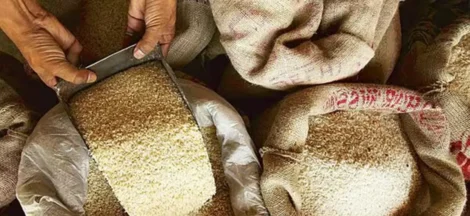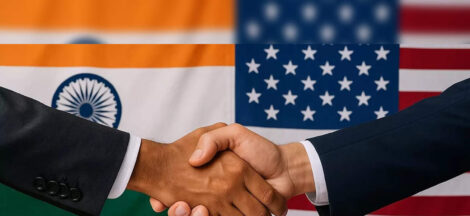NEW DELHI: Commerce and Industry Minister Piyush Goyal on Friday said that the Modi government always keeps in mind commensurate and long-term benefits for the domestic industry while negotiating free trade agreements.
He stressed that “gone” are the days when India used to accept the terms of the world.
“We crystal gaze into the future to make sure that its (FTAs) impact in the future will also be positive and we also look at balanced, fair and equitable FTAs,” he told PTI in an interview.
“So we can see the big Indian opportunity that we are offering and we want to make sure that we get commensurate benefits (from these pacts) for the country,” he said.
He indicated “some good news” on this front in the days to come.
The remarks assume significance as India and the European Free Trade Association (EFTA) bloc concluded the talks for an FTA.
EFTA members are Iceland, Liechtenstein, Norway, and Switzerland.
The minister said that the free trade pacts of the Modi government involve a huge amount of stakeholder consultations with industry.
Besides, every line ministry also gets involved in making sure that the government protects the country’s long-term interests, he said.
“Today we give out the terms, based on the big Indian opportunity that we bring to the table. I am very confident that we hear some good news in the days to come. Our officers are relentlessly pursuing several engagements. Let us see who pips the others,” he said.
Under free trade pacts, two trading partners significantly reduce or eliminate customs duties on the maximum number of goods traded between them, besides easing norms to promote trade in services and investments. FTA talks for the UK and Oman are also at an advanced stage.
UK Secretary of State for Business and Trade Kemi Badenoch has said trade deal being negotiated with India is “possible” to be concluded before a general election in the country but Britain does not want to use that as a deadline,
The minister in charge of signing off on the free trade agreement (FTA), now in its 14th round of negotiations, pointed to India’s “protectionist economy” in comparison with the UK’s liberalised regime as one of the factors behind the long-drawn discussions.
Badenoch, who was speaking during a Global Trade conference at the think tank Chatham House on Thursday, stressed that she wanted to ensure a “commercially meaningful” pact as opposed to just a pre-election picture opportunity.
“India is still very protectionist where we are very, very liberalised,” claimed Badenoch.
“I am not interested in just taking a picture and moving on. It has to be something that is commercially meaningful. People need to be able to say ‘ah now I can do this’, like we had with our Australia agreement or with Japan for example,” she said, referring to FTAs with the two major economies.
On the timeline for getting to the finishing line with the talks with India, she added: “We can actually sign an agreement before the Indian election. I suspect that that is not necessarily going to be the case because I don’t want to use any election as a deadline.
“It is possible that that will be done but I am very resistant to deadlines being set on trade negotiations because it runs down the clock. It is very possible that we can sign but I am not using it as a deadline for the work that I am carrying out basically.”
India and the UK have been negotiating an FTA since January 2022 to significantly enhance the GBP 36-billion bilateral trading partnership. The 13th round of talks concluded on December 15 last year, with both sides hopeful that the ongoing fourteenth round will end in an agreement.
With both India and the UK set for a general election this year, signing off on a trade agreement has taken on particular urgency before leaders on both sides get into campaign mode.
With Inputs from PTI



